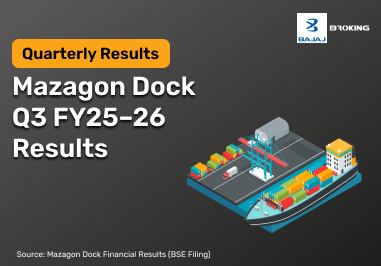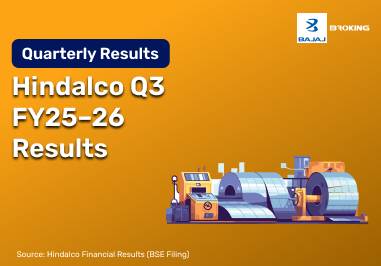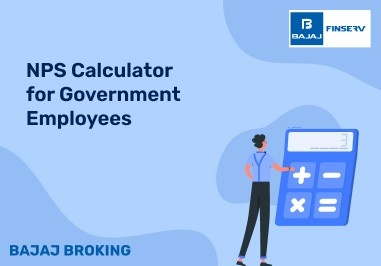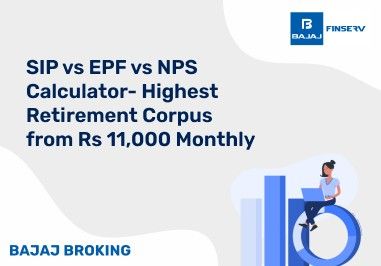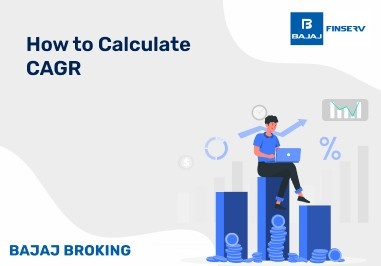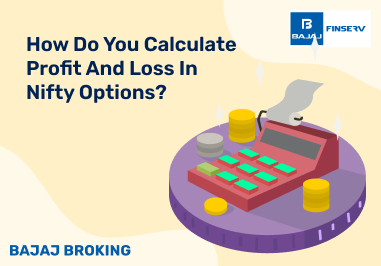Understanding margin and margin trading
Buying on margin
Buying on margin means using money borrowed from a broker to buy securities. It works like a loan from your brokerage. You pay part of the amount (called the margin), and the broker lends you the rest. This allows you to buy more than you could with just your own money. To do this, you need a margin account. It is different from a cash account, which only uses your own funds for trading.
Minimum Margin
To open a margin account, your broker needs your permission. The process may follow standard steps or require a separate agreement. Once you start using the margin account, you must keep a minimum amount of equity in it. This is called the minimum margin or maintenance margin. It ensures you have enough of your own funds to support the borrowed money.
Margin trading is a strategy that allows you to borrow funds from a broker to increase the size of your investments in the stock market or other financial markets. Instead of using only your own capital, margin trading enables you to use borrowed money, or leverage, to buy more securities than you could afford with your available funds. The margin you deposit serves as a down payment for the loan amount in this arrangement. In essence, taking larger holdings through margin trading enables you to increase the possible profits on your assets. When used properly, this can be a very effective strategy.
How Margin Money Works in Trading ?
The first deposit that an investor must make when trading on margin or borrowing money for investments is known as "margin money." It acts as collateral, giving the lender or broker protection in the event that the trade or investment loses value. In essence, margin money is the sum of money you invest in the trade in order to obtain a broker loan or leverage. When you wish to trade more than you have accessible cash, you must make this deposit in order to borrow funds for greater trades or investments. It is frequently utilised in real estate, the stock market, and other loan applications.
When you engage in margin trading, the margin money acts as a safeguard for the lender. If the value of the asset you’re trading decreases, the margin money helps cover part of the loss. For instance, in the stock market, if you want to buy more stocks than your available funds allow, you can borrow money from a broker. The margin money is the amount you must deposit to secure the borrowed funds. The broker or lender may require additional margin money if the value of the stocks you purchased falls below a certain threshold, a situation known as a margin call. The amount of margin money required can vary depending on the financial institution and the type of trading or loan. Some brokers may require a higher margin for riskier trades, while others may have more flexible requirements depending on the assets being traded. Understanding the margin requirements of your broker or lender is crucial before engaging in margin trading to ensure you're fully aware of the financial commitment and the risks involved.
Example of Margin Money in Trading
Imagine you decide to buy ₹10,00,000 worth of stocks, but your broker requires a margin of 30%. In this case, you would need to deposit ₹3,00,000 as margin money, while the remaining ₹7,00,000 would be borrowed from your broker. This allows you to take a larger position in the market than you could with your own funds. If the value of the stocks increases, you will benefit from the appreciation of the entire ₹10,00,000. Even though you still owe ₹7,00,000 to the broker, you get to keep the profits from the rise in value, amplifying your returns.
However, margin trading also carries the risk of potential losses. If the value of the stocks decreases, you may be required to add more margin money to your account to maintain the position and prevent a margin call. This happens because the broker wants to ensure that there is enough collateral to cover the loaned amount. If you cannot add the necessary funds, the broker might liquidate your position to recover the borrowed money. Therefore, while margin trading offers the opportunity for larger gains, it also exposes you to greater financial risk if the market moves against your position.
Initial margin explained
Maintenance margin and margin call
Maintenance margin is the minimum amount that must stay in your margin account. It acts as a safety cushion for the broker in case your trades face losses. If your account balance falls below this limit, the broker may ask you to add more funds.
This request is called a margin call. When a margin call happens, you need to deposit money to bring your balance back up. If you don’t, the broker can sell some or all of your securities without asking you. This might also involve paying extra charges for those transactions. Your investments may be sold at a loss to meet the requirement.
Special considerations
Buying on margin is like taking a loan, and it comes with interest. The securities you buy become collateral. If you fail to repay the loan or meet the margin requirement, the broker can sell your holdings.
That’s why investors usually use margin for short-term trades. They plan to repay the loan quickly and avoid paying too much interest. Margin trading is risky for long-term positions because interest keeps adding up, and repayment gets harder.
Also, not all securities can be bought on margin. IPOs, mutual funds, and penny stocks are usually not allowed. Every broker has their own rules, so it's best to check what’s eligible for margin trading before you start.
The initial margin is the amount of money you are required to deposit when you first enter into a margin trade. It serves as the starting point of your margin account and is typically calculated as a percentage of the total value of the investment you wish to make. This deposit acts as collateral, providing the broker with a level of security in case the value of your trade declines. By requiring you to put up a portion of the total value upfront, the initial margin ensures that both you and the broker are financially protected from the risks associated with margin trading.
For example, let's say you want to buy shares worth ₹1,00,000, and the broker has set an initial margin requirement of 20%. In this case, you would need to deposit ₹20,000 as your margin money. The remaining ₹80,000 would be borrowed from the broker, allowing you to leverage your investment. The initial margin is an essential part of the borrowing process because it reduces the risk to the broker by ensuring that you have a financial stake in the trade. If the value of your investments falls, the initial margin helps to cover the potential losses. The broker might, however, request more money to be put in order to keep the position open if the value of the securities you bought falls sharply. This is frequently called a margin call. Knowing the initial margin requirement is essential for controlling the risks involved in trading on margin since it helps you determine how much capital you must commit.
Additional Read: What is Margin of Safety
Advantages and disadvantages of margin borrowing
Advantages
| Disadvantages
|
Increased Buying Power: With margin money, you can leverage your position, giving you the ability to buy more than you would with just your funds.
| Higher Risk: The potential for losses is also increased as you are borrowing money. If the value of your investment decreases, you could lose more than your initial deposit.
|
Amplified Potential Gains: If your investments perform well, margin trading can amplify your profits. You have the opportunity to earn greater returns by controlling a larger position.
| Margin Calls: If your investments lose value, the broker may require you to deposit additional funds (margin money) to maintain your position. Failure to do so could result in the forced sale of your securities.
|
Access to Larger Investment Opportunities: Margin borrowing allows you to take advantage of larger investment opportunities that you might not otherwise be able to afford with only your own capital.
| Interest on Borrowed Funds: The borrowed money typically comes with interest charges. Over time, these costs can reduce your overall profit or increase your losses.
|
Diversification: With the ability to borrow funds, you can diversify your portfolio by purchasing more assets than you could without margin.
| Potential for Over-leveraging: If you use too much leverage, the risk of significant losses increases. Poorly managed margin accounts can result in financial difficulties or even bankruptcy.
|
Liquidity Flexibility: Margin trading allows you to hold positions that you can quickly sell to raise funds if necessary, offering a level of liquidity that may not be possible with your own capital.
| Psychological Pressure: The heightened risk and the possibility of margin calls can cause stress and pressure, making it harder to make rational investment decisions.
|
Opportunity to Benefit from Market Movements: Even with limited capital, margin trading gives you the chance to benefit from favourable market movements by amplifying your positions.
| Increased Volatility Exposure: Margin positions are subject to more volatility, and small market fluctuations can have a larger impact on your invested capital.
|
Other uses of margin
Margin money is a versatile financial tool that extends beyond stock trading and can be used in a variety of investment and loan scenarios. One common use of margin is in margin loans for real estate. When purchasing a property, you may borrow a significant portion of the property's value from a lender, while putting up margin money as collateral. This enables you to secure a larger loan than you could with only your own capital. Similar to margin trading, margin money in real estate serves as a safeguard for the lender. If the property’s value decreases, the lender has a financial cushion to cover any losses.
Another significant area where margin money is used is futures trading. Futures contracts are promises to purchase or sell an asset at a specified price at a future time. Margin is required to enter these contracts, acting as a security deposit for the transaction. In futures trading, the margin money ensures that both parties in the contract have a vested interest, and it also helps protect the broker from any risk of default. Similarly, margin can also be used in securities purchases, where investors use margin money to borrow funds to buy more securities than they could afford with their available funds. Additionally, margin loans can be applied in private equity investments and forex trading. Regardless of the specific use, margin money plays a crucial role in providing security to the lender or broker, ensuring they are protected in case the borrower defaults or the trade moves unfavourably.
Risks of margin trading
Margin trading offers the potential for significant returns, but it also comes with its own set of risks that you should be aware of. One of the key risks is market volatility. If the market moves against your position, your losses could be magnified, as you are borrowing money to amplify your trades. For example, even a small decline in the value of your assets can result in substantial losses due to the leveraged nature of margin trading. This means that while the potential for higher returns exists, the potential for deeper losses is also a reality.
Another risk involved in margin trading is the possibility of a margin call. If the value of your investments declines and your equity falls below the required maintenance margin, your broker will issue a margin call. This means you must deposit additional funds into your margin account to bring your equity back up to the required level. If you're unable to meet the margin call, your broker may liquidate your assets to cover the loan, potentially locking in a loss for you. Additionally, when you borrow money to trade on margin, you are subject to interest payments on the borrowed funds. These interest costs can eat into your profits over time, especially if you hold the margin position for an extended period. The interest charges can add up, reducing your overall returns from the trade. It’s essential to consider all these risks before engaging in margin trading, as the rewards can come with significant downside exposure.
Conclusion
Margin money is a building block of margin investing and trading, serving as protection for lenders and giving you the ability to take more size than you have in your account. Leverage gives you the potential to amplify your return, but with greater risk. You're essentially borrowing money to multiply your trades when you utilize margin money, meaning that the rewards and risks are both increased. It's essential to understand that while margin trading can open up more investment opportunities, it also exposes you to the possibility of significant losses if the market moves unfavourably.
Before diving into margin trading, it's crucial to have a clear understanding of the margin requirements set by your broker, the potential for margin calls, and the interest payments associated with borrowed funds. Additionally, you need to be prepared for the possibility of amplified losses in the event of market downturns. By managing your investments wisely, staying informed, and carefully evaluating the risks, you can make more informed decisions when it comes to using margin money. Always ensure that margin trading aligns with your investment goals and risk tolerance to avoid undesirable financial consequences.


